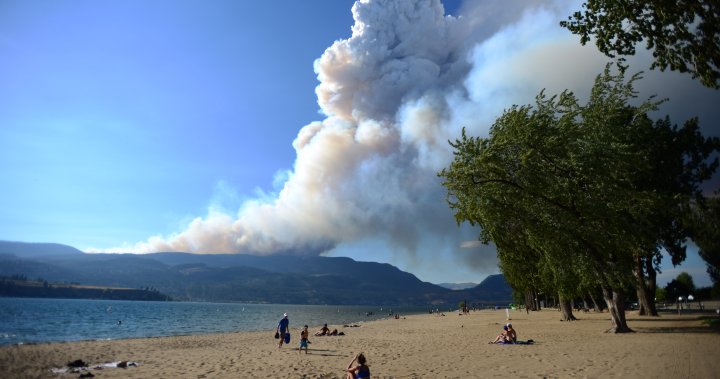Wildfires have ravaged parts of Canada this summer, posing a significant challenge to the country’s tourism industry as it attempts to recover from pandemic-related restrictions. The fires, which have occurred in various provinces throughout the year, have forced residents to evacuate and disrupted businesses during the peak summer travel season. While the primary concern is the safety of those affected, the wildfires are hindering the industry’s critical rebound from the pandemic.
Beth Potter, president and CEO of the Tourism Industry Association of Canada (TIAC), acknowledges that tourism businesses were already struggling to recover from the impacts of COVID-19. Additional crises, such as wildfires and extreme weather events, are further impeding the return to normal operations. The situation prompted B.C. Premier David Eby to impose a temporary travel ban to affected areas. Although restrictions have been lifted in some regions, many operators are still grappling with the aftermath of the wildfires.
The ongoing devastation is not only affecting businesses directly impacted by the fires but also tourist sites in unaffected areas. Communication is a major concern as these sites must reassure international visitors that it is safe to travel. The wildfires in Canada, along with those in Greece and Hawaii, have attracted international attention and could damage the reputation of Canada’s tourism industry, which is a key economic driver.
Climate-related disruptions have become a recurring problem in Canada this summer, with flooding and storms causing damage in different provinces. This poses a long-term risk to the country’s status as a tourist destination. While tourism accounts for around two percent of Canada’s GDP, it can have a significant impact on resort towns affected by natural disasters.
Pedro Antunes, chief economist at the Conference Board of Canada, warns that the effects of climate change could deter tourists from visiting affected areas. Additionally, businesses in these regions face challenges in obtaining adequate insurance coverage, as premiums are expected to rise due to climate change-related risks. The costly insurance burden could prevent some businesses from reopening.
The Tourism Industry Association of Canada is working with governments to address these challenges and build resilience to extreme weather events. Conversations are underway to establish parameters for insurance coverage that would protect businesses in the future. Despite the setbacks, Potter urges Canadians to support affected areas once the fires are extinguished by patronizing wineries and tourist destinations, emphasizing the need for community support during the recovery process.
Denial of responsibility! VigourTimes is an automatic aggregator of Global media. In each content, the hyperlink to the primary source is specified. All trademarks belong to their rightful owners, and all materials to their authors. For any complaint, please reach us at – [email protected]. We will take necessary action within 24 hours.


